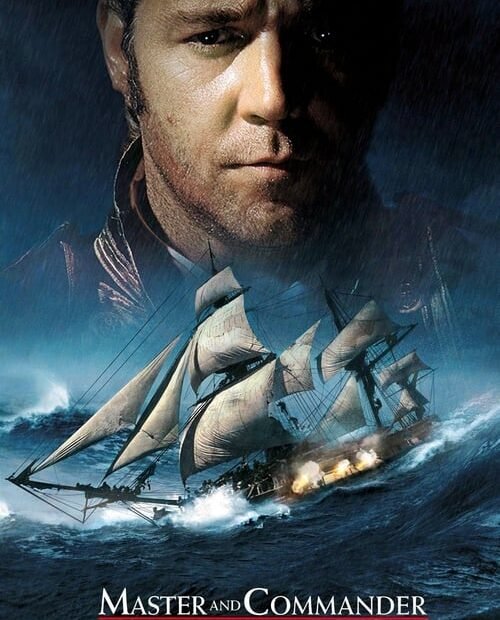Master and Commander: The Far Side of the World – A Nautical Frolic Through Napoleonic Nonsense
Picture this: it’s the early 19th century, and the British Navy, armed with more cannons than common sense, is battling the French like it’s an episode of Survivor but with more rum and fewer alliances. Enter Captain Jack Aubrey, played by the ever-charming Russell Crowe, who navigates the high seas with the grace of a ballet dancer on a ship that’s more rickety than a two-legged stool.
Our story kicks off with Aubrey commanding the H.M.S. Surprise, a name that’s a bit misleading because there’s nothing surprising about how many times they get shot at. Aubrey and his crew of merry misfits are on a mission to hunt down the French warship Acheron, which is so menacing it could probably intimidate a sea monster into submission. Spoiler alert: it does not go swimmingly.
The plot thickens faster than a bowl of oatmeal as they encounter the Acheron, which promptly decides to rain cannonballs on our poor Surprise like it’s an angry chef with a grudge. After a disastrous encounter that leaves the ship looking like a colander, Captain Aubrey faces a moral conundrum: does he continue the pursuit of the Acheron, risking his crew’s lives, or does he turn back to tend to his wounded, who are about as cheerful as a cat in a bathtub?
In the midst of all this, we witness a plethora of delightful shenanigans. From the ship’s doctor, Stephen Maturin (played by Paul Bettany, who looks like he just stepped out of a romantic poetry reading), performing surgeries that would make a butcher cringe, to the crew engaging in more nautical tomfoolery than you’d find at a drunken pirate convention. They even have a thrilling game of “let’s see who can climb the rigging while shouting Shakespeare,” which is both dangerous and utterly ridiculous.
As the chase continues, Aubrey’s obsession with the Acheron grows like a bad rash. He becomes increasingly torn between being a good captain and a decent human being. It’s like watching a father decide between attending his daughter’s wedding or going to a football match. Spoiler: he chooses the match, but with a heavy heart.
Eventually, after a series of battles that feel like they were choreographed by a hyperactive child, they finally corner the Acheron. It’s like the climax of a bad buddy cop film, except instead of cheesy one-liners, we get cannon fire and a lot of brooding. They engage in a final showdown that’s less about naval strategy and more about who can shout “Fire!” the loudest. And yes, they fire, and it’s glorious—if you enjoy watching ships explode in a shower of splinters and despair.
In the end, after much bloodshed and a few too many moral dilemmas for one captain, Aubrey learns that being a leader isn’t just about following orders; it’s about knowing when to listen to your heart (and your doctor). He doesn’t just emerge victorious over the Acheron; he also manages to keep most of his crew intact, which is a win in any captain’s book.
So, if you fancy a film that combines the thrill of naval warfare with the existential musings of a man grappling with duty versus compassion, then Master and Commander: The Far Side of the World is your ticket to a surreal maritime adventure. Just don’t forget to bring your sense of humor—because the only thing more volatile than the ocean in this film is the crew’s sense of sanity!
